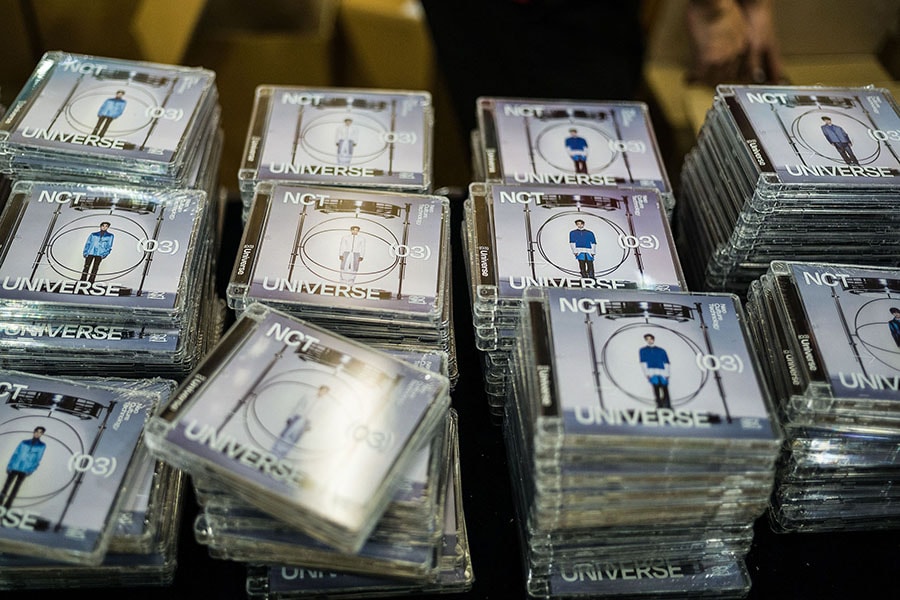In South Korea, K-pop is being urged to think green
The Korea Times estimates South Korea's 15 main manufacturers sold over 390 tonnes of plastic packaging in 2022
 Some 100 million physical albums are sold every year to fuel the K-pop frenzy, according to the Korea Times. Image: Photography ANTHONY WALLACE / AFP
Some 100 million physical albums are sold every year to fuel the K-pop frenzy, according to the Korea Times. Image: Photography ANTHONY WALLACE / AFP
The music industry is increasingly aware of the need to reduce its environmental footprint, prompting it to embark on getting greener. But in South Korea, the government feels that the K-pop industry isn't doing enough.
Indeed, South Korean pop is not very eco-friendly. This is mainly due to the huge number of records that fans of this musical genre buy to support their idols. Some 100 million physical albums are sold every year to fuel the K-pop frenzy, according to the Korea Times.
CDs are made up of 90% polycarbonate, a type of transparent plastic that is highly resistant to scratches. They also contain aluminum, as well as traces of silver, gold and nickel, making them very difficult to recycle. And that's not counting the cases in which they are sold, which add to their carbon footprint. The Korea Times estimates that South Korea's 15 main manufacturers sold over 390 tonnes of plastic packaging in 2022.
This figure is far too high considering the climatic and ecological commitments made by South Korea in recent years. In 2020, the Asian country pledged to reduce its greenhouse gas emissions to achieve carbon neutrality by 2050, following in the footsteps of its neighbors China and Japan. The South Korean government is urging all business sectors to make a greater commitment to the climate, including the music industry.

















